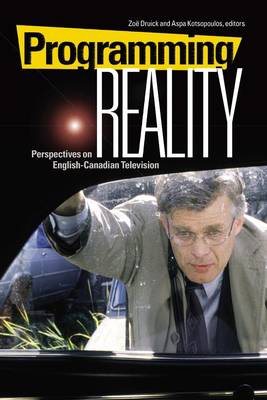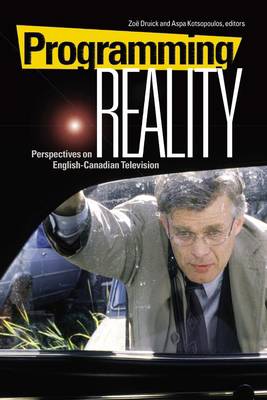
- Retrait gratuit dans votre magasin Club
- 7.000.000 titres dans notre catalogue
- Payer en toute sécurité
- Toujours un magasin près de chez vous
- Retrait gratuit dans votre magasin Club
- 7.000.0000 titres dans notre catalogue
- Payer en toute sécurité
- Toujours un magasin près de chez vous
Programming Reality
Perspectives on English-Canadian Television
Description
Programming Reality: Perspectives on English-Canadian Television, the first anthology dedicated to analyses of Canadian television content, is a collection of original, interdisciplinary articles, combining textual analysis and political economy of communications. It explores the television that has thrived in the Canadian regulatory and cultural context: namely, programs that straddle the border between reality and fiction or even blur it. The conceptual basis of this collection is the hybrid nature of television fare: the widely theorized notion that all mediations of reality involve fiction in the form of narrative or symbolic shaping. Each of the contributions here is a reminder, too, of the significant relationship of television to nation building in Canada--to the imaginative work involved in thinking through the relations that constitute nations, citizens, and communities. The collection focuses on English-language Canadian television because the imperatives guiding its texts are markedly different from those pertaining to their French-lanugage counterparts. The collection, therefore, develops a nuance of perspective on the cultural and political economic specificities that inform the imaginative work of television production for English Canada.
Spécifications
Parties prenantes
- Editeur:
Contenu
- Nombre de pages :
- 354
- Langue:
- Anglais
- Collection :
Caractéristiques
- EAN:
- 9781554580101
- Date de parution :
- 01-08-08
- Format:
- Livre broché
- Format numérique:
- Trade paperback (VS)
- Dimensions :
- 152 mm x 226 mm
- Poids :
- 521 g

Les avis
Nous publions uniquement les avis qui respectent les conditions requises. Consultez nos conditions pour les avis.





